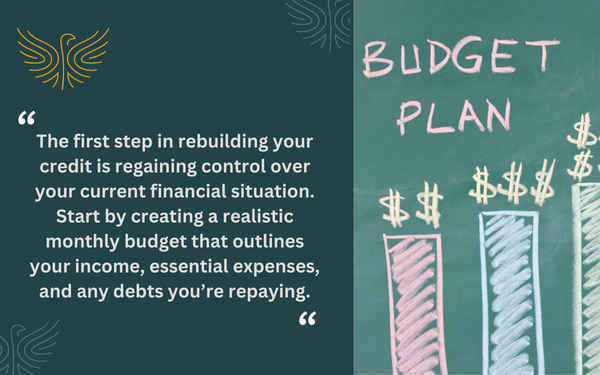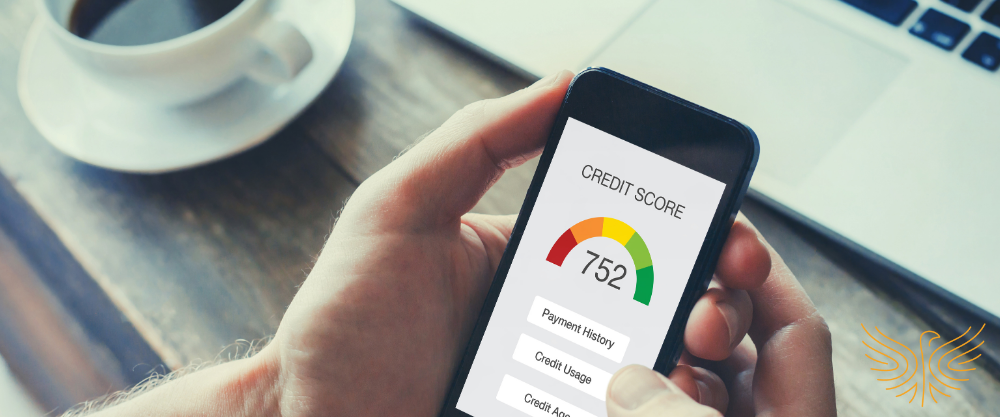Addiction causes strain across various life areas. This frequently includes an individual’s finances, which is also often a hurdle that stands in the way of individuals getting the help they need. But it’s worth noting that nothing is permanent, and it’s entirely possible to regain control and rebuild—even with a bad credit score.
Ultimately, rebuilding your financial foundation after rehab takes patience, persistence, and the right strategies. With a clear plan, you can work toward improving your credit, regaining stability, and creating a stronger future for yourself. So, where should you start?
_______________________________________________________
What Is the Fastest Way to Rebuild Credit?
Building credit is important for long-term financial independence. Often, it involves taking intentional and consistent steps that demonstrate to lenders your reliability. By focusing on responsible borrowing, timely payments, and smart financial habits, you can gradually improve your credit score and set yourself up for a stable future.
And here’s how you can do that!
Set a Budget
The first step in rebuilding your credit is regaining control over your current financial situation. Start by creating a realistic monthly budget that outlines your income, essential expenses, and any debts you’re repaying. Prioritize necessities like housing, food, transportation, and healthcare before allocating money toward debt or savings. In turn, this helps reduce financial stress, helps prevent overspending, and provides a roadmap for progress.

And if you need it, work with a financial advisor or trusted loved one. Support in these early stages can go a long way in alleviating associated stress and pressure.
Check Your Credit Reports
As with anything, knowledge is power. And this also proves true when repairing your credit. Request free copies of your credit reports from the three major bureaus:
Review these reports carefully for errors, outdated information, or accounts you don’t recognize. Then, ensure you dispute inaccuracies directly with the bureaus to clean up your record. This way, you start your financial rebuild with a “clean slate” of sorts or, at least, with an idea of what your current situation involves.
Use Your Credit Card Responsibly
You don’t need to avoid using your credit card, unless you’re unsure about trusting yourself to pay it back. Rather, you want to use any credit or credit cards wisely!
If possible, start with a secured credit card, which requires a refundable cash deposit upfront (usually equivalent to your credit limit). Alternatively, consider a low-limit card specifically designed for credit building.
Then, use your credit cards only for small, manageable purchases like a phone bill or groceries, and pay the balance in full each month. Keeping your credit utilization below 30% demonstrates to lenders that you’re responsible and helps you steadily improve your score.
Seek Out Support
Rebuilding credit after rehab can feel overwhelming, but you don’t have to do it alone. Many treatment centers, nonprofits, and local organizations offer financial counseling and credit-building workshops specifically designed for individuals in recovery.
As mentioned above, you may also choose to work with a financial advisor, recovery coach, or peer support group to create an action plan and stay accountable to your goals. This can be a great option if you’re still on unsteady ground with trusting yourself to follow through. Having an external accountability partner can count for a lot, especially early on!
Be Patient
At the end of the day, improving your credit score takes time and consistency. And in reality, rushing the process can lead to risky financial decisions or relapse triggers.
So, focus on steady, positive habits—such as making on-time payments, gradually reducing debt, and avoiding high-interest loans. Over time, these small actions build lasting results!
Other Tips
Here are a few other tips to help you get on track:
- Automate payments whenever possible to avoid missing due dates.
- Avoid predatory lending offers that target individuals rebuilding credit.
- Negotiate payment plans with creditors instead of letting debts go unpaid.
- Monitor your credit regularly to track progress and spot issues early.
- Celebrate milestones, no matter how small—progress in recovery includes your financial health too!
_______________________________________________________
Regain Your Confidence & Independence
Recovery isn’t always a straightforward or easy journey. However, rebuilding your credit after rehab is an important step toward increased confidence, stability, and ultimately independence. And whenever the road seems tough, reach out to your support systems. Or build those support systems, such as speaking with a financial advisor.
If you’re just in the beginning steps of recovery, Freedom Recovery Centers (FRC) is here to help guide you. With the right support, anything is possible! When you or your loved one is ready, call us at 804-635-3746.
.svg)






.svg)

.svg)



.svg)
